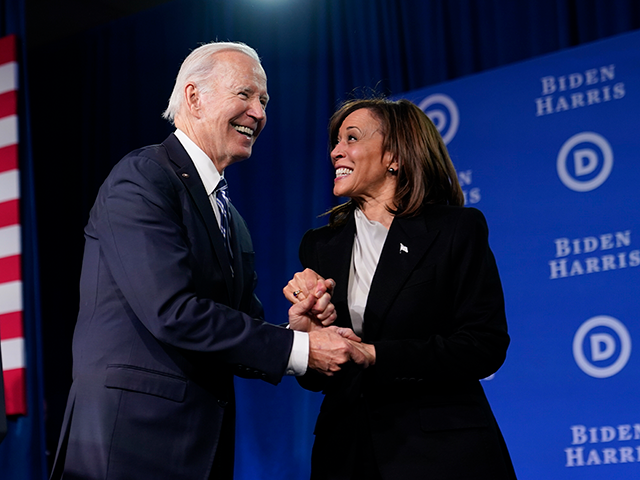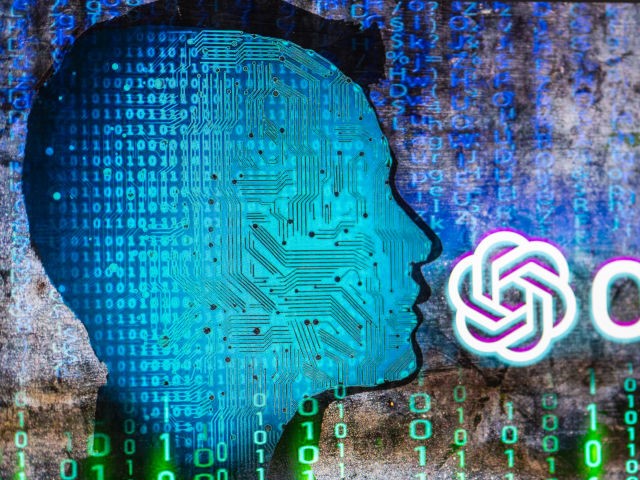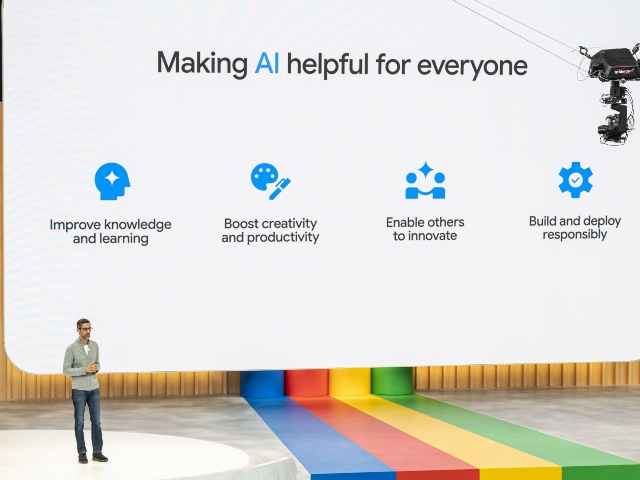
President Joe Biden released an executive order aimed at regulating the artificial intelligence (AI) industry today, which includes a provision that AI must advance the goals of “civil rights” and “equity” — aka, the left’s diversity, equity, and inclusion (DEI) framework.
The White House says it will sent out guidance to landlords, federal contractors, federal benefits programs and others to reduce the possibility of racial and other biases in their use of AI. There will also be enforcement: the White House fact sheet on the executive order states that there will be “training, technical assistance, and coordination between the Department of Justice and Federal civil rights offices on best practices for investigating and prosecuting civil rights violations related to AI.”
Additionally, the use of AI in the criminal justice system will be a top priority, with plans to develop “best practices on the use of AI in sentencing, parole and probation, pretrial release and detention, risk assessments, surveillance, crime forecasting and predictive policing, and forensic analysis.”

OpenAI logo seen on screen with ChatGPT website displayed on mobile seen in this illustration in Brussels, Belgium, on December 12, 2022. (Photo by Jonathan Raa/NurPhoto via Getty Images)

Sundar Pichai, chief executive officer of Alphabet Inc., during the Google I/O Developers Conference in Mountain View, California, US, on Wednesday, May 10, 2023. Photographer: David Paul Morris/Bloomberg
The unspoken fear here is that if AI is allowed to fully analyze certain types of data, such as criminal records and credit ratings, might result in unequal outcomes for the certain groups. This fear is at the heart of the academic field of machine learning fairness, a blend of critical race theory and computer science which Breitbart News has covered exensively before, and which this part of the executive order seems to draw on. The bottom line: in order to avoid violating U.S. civil rights laws, in particular the doctrine of disparate impact, companies using AI may in some cases have to stop them from reaching conclusions that are too accurate.
The executive order contains a number of other priorities. It will require AI companies to use watermarks so that people can distinguish between AI-generated content (particularly images and videos) and non-AI generated content.
It also involves the government in AI safety testing. The National Institute of Standards and Technology will establish standards for safety-testing new AI systems, while the Department of Homeland Security (DHS) will establish a “AI Safety and Security Board” to ensure critical infrastructure sectors meet those safety standards.
The involvement of DHS in the regulation of AI may alarm online freedom campaigners, given the agency’s central role in the censorship and targeting of Americans. DHS sub-agencies have in the past used a cybersecurity pretext to take a leading role in censoring “disinformation,” and created guides for “deradicalizing” conservative Americans.
On the security side, the Departments of Energy and Homeland Security will also “address AI systems’ threats to critical infrastructure, as well as chemical, biological, radiological, nuclear, and cybersecurity risks.” The White House summary also notes that agencies funding life sciences projects will also establish standards on biological synthesis projects, to ensure that AI does not make it easier to engineer dangerous biological materials.
Worker protection is another priority of the executive order, in particular protection from job displacement and surveillance. The White House is vague on how the former will be accomplished, promising “principles and best practices” for employers and “a report on AI’s potential labor-market impacts.”
Perhaps conflicting with the interests of American workers, there is also an immigration component to the executive order. The White House says it will “use existing authorities to expand the ability of highly skilled immigrants and nonimmigrants with expertise in critical areas to study, stay, and work in the United States by modernizing and streamlining visa criteria, interviews, and reviews.”
Privacy is another prong of the executive order. The White House says it will look into how federal agencies and third-party data brokers collect and use “commercially available” information to train their AI systems. The government will aim to prioritize federal support for projects “that let AI systems be trained while preserving the privacy of the training data.”
Allum Bokhari is the senior technology correspondent at Breitbart News. He is the author of #DELETED: Big Tech’s Battle to Erase the Trump Movement and Steal The Election.
